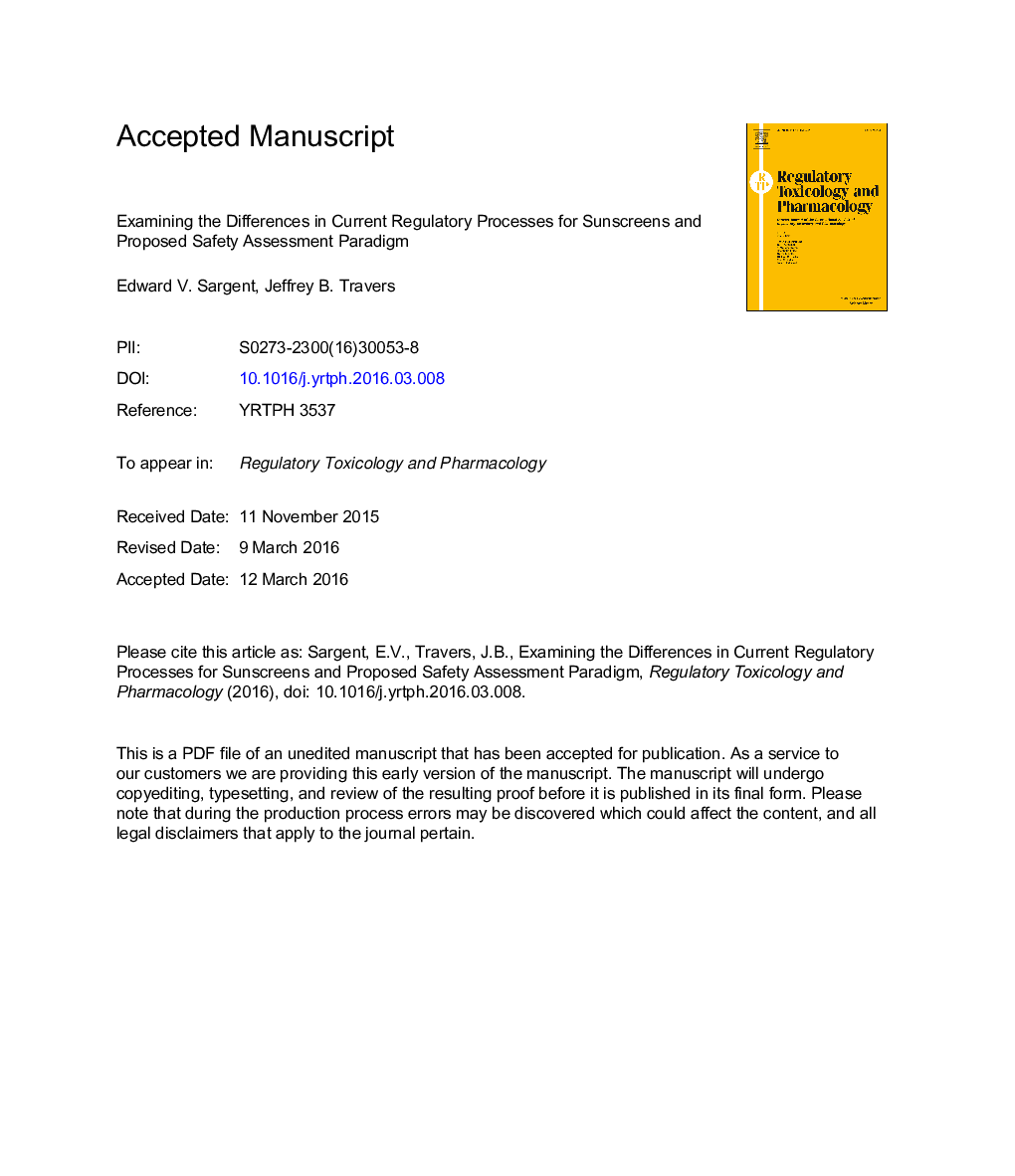| Article ID | Journal | Published Year | Pages | File Type |
|---|---|---|---|---|
| 5856028 | Regulatory Toxicology and Pharmacology | 2016 | 54 Pages |
Abstract
Skin cancers including malignant melanoma which are due to UV radiation constitute a serious public health problem. Recent studies have confirmed the importance of UVA radiation in the pathogenesis of skin cancer, as well as the protective effects of broad-spectrum sunscreen use. Barriers for effective protection of the US public include the lack of effective UV filters, especially in the UVA spectrum. The major reason for the paucity of UVA-effective filters in the US is due primarily to the FDA's reluctance to approve agents which have already been on the market in Europe and elsewhere in the world for more than a decade. The underlying reasons for these discrepancies in new sunscreen approval success between the US and abroad are complex, and include factors such as that the FDA considers UV filters as drugs, whereas they are regulated as cosmetics elsewhere. FDA has not as yet developed a consistent approach for the approval of new UV filters. We provide a paradigm for both non-clinical testing and human safety testing which includes parameters for a human maximum use test (MUsT) that is based upon both ethical and scientific concepts. These suggestions could form the basis of future regulatory guidelines for rational testing thus allowing us to reach the consensus goal of more efficient and timely approval of much-needed UV filters to provide protection for the US public.
Related Topics
Life Sciences
Environmental Science
Health, Toxicology and Mutagenesis
Authors
Edward V. Sargent, Jeffrey B. Travers,
